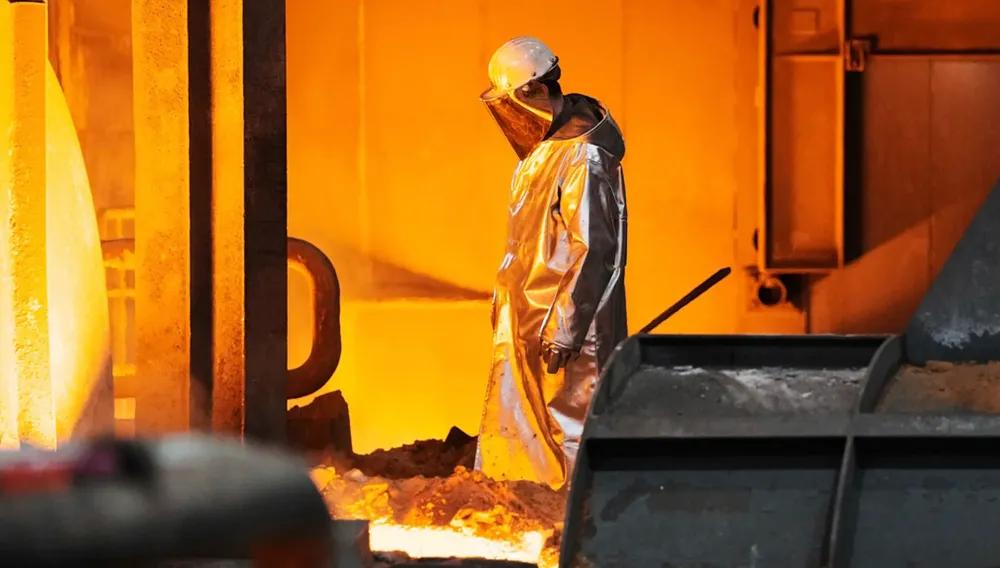
The European Commission unveiled a proposal on October 7th, planning to significantly reduce tariff-free import quotas for steel and raise the tariff on steel imports exceeding the quota from the current 25% to 50%. Additionally, the EU will introduce new origin rules based on the "melting and casting" principle to strengthen traceability of steel products' origins. While aimed at protecting the EU steel industry from the impact of global overcapacity, this move has triggered serious concerns in the automotive manufacturing sector.
The European Commission's proposal marks a further shift toward protectionism in its steel trade policy. Under the proposal, the EU plans to set the annual steel import quota at 1.83 million tons, a substantial 47% reduction from the 2024 level. For steel imports exceeding the quota, the EU will impose tariffs as high as 50%, doubling the current rate. The European Commission stated that these measures aim to "address the negative impacts caused by global steel overcapacity and ensure the long-term development of the EU steel industry as a strategic sector." Eurostat data shows that the steel industry in the EU has approximately 500 production sites, directly employing around 300,000 people and indirectly supporting about 2.5 million jobs.
The European Automobile Manufacturers' Association (ACEA) issued a statement expressing serious concerns about these measures the day after the proposal was announced. ACEA Director General Sigrid de Vries pointed out that although approximately 90% of the automotive industry's direct steel purchases are made within the EU, manufacturers still need to import specific quantities and qualities of steel products. ACEA warned that changing key safeguard parameters—particularly significantly reducing quotas and raising above-quota tariffs to 50%—will significantly reduce the possibility of alleviating pressure on the European market through imports. The automotive manufacturing industry is a major consumer of steel globally. According to data from the World Steel Association, the automotive industry accounts for 12% of global steel consumption, with each vehicle typically using an average of about 900 kilograms of steel.
In its statement, ACEA emphasized that it is "most concerned about the continued inflationary impact of EU steel safeguard measures on European market prices." The association believes these measures will push up prices of related products, thereby exacerbating already high inflation. The new origin rules will also pose challenges. ACEA noted that origin rules based on the "melting and casting" principle will "further restrict imports and create significant administrative burdens for European steel users." Applying such origin rules is extremely complex in industries with highly globalized supply chains like the automotive sector. ACEA stated that during the seven years of the current safeguard measures, quotas for automotive-grade steel have been rapidly exhausted. This means automakers are already facing shortages of imported steel, and the new measures will further restrict their access.
While acknowledging the challenges facing the steel industry, which is in the process of decarbonization, ACEA believes the Commission's proposal "goes too far in isolating the European market." Director General de Vries stated: "We do not oppose the need to provide a certain level of protection for a foundational industry like steel, but we believe the parameters proposed by the Commission go too far in isolating the European market." She added: "We need to find a better balance in this measure between the needs of EU steel producers and users." This balance is crucial because the automotive industry is not only an important customer of the steel industry but also a key component of the EU economy. Protecting one industry should not come at the expense of another's competitiveness.
The EU's move has also attracted broader international attention. The European Union Chamber of Commerce in China stated that the EU's decision to align with certain countries' unilateral tariff practices could further fragment global steel trade and undermine the stability of international supply chains. The chamber believes that while these measures are presented as defensive safeguards, they actually represent protectionist steps that could have significant and challenging spillover effects in downstream industries—particularly automotive, machinery, and construction sectors. The UK government has been even more outspoken in its criticism, stating that the measures will "destroy the UK steel industry." This indicates that EU trade policies may trigger tensions with trading partners.
According to the EU's agenda, after the European Commission announced the restrictive measures, the European Parliament and the Council of the EU will conduct deliberations. If approved, these measures will take effect when the current EU measures expire in June 2026. The market has already reacted. According to a report from S&P Global Commodity Insights, European importers have adopted a wait-and-see attitude amid these regulatory headwinds, making domestic supply more attractive to purchasers. Meanwhile, European domestic hot-rolled coil steel prices have shown resilience, with sellers optimistic about prices at the end of the year and beyond.
EU steel trade policy is caught in a dilemma: protecting the short-term interests of the domestic steel industry or maintaining the global competitiveness of important downstream industries including automobile manufacturing. Automakers are concerned not only about costs but also about the administrative burdens brought by new origin rules and the complexity of global supply chains. The European Commission needs to find a balance between steel producers and users; otherwise, protecting one industry may come at the cost of another's competitiveness.

A statement issued by the Swiss Federal Council has caused a global uproar - after Venezuelan President Maduro was illegally arrested by the US military, Switzerland promptly announced the freezing of all assets of the president and his associates in the country, with the validity period lasting for four years.
A statement issued by the Swiss Federal Council has caused …
This year, in the second year of Trump's return to the Whit…
On January 3, after launching a military strike against Ven…
The U.S. military's surprise raid on Caracas, the capital o…
Since the end of the COVID-19 pandemic, California's econom…
According to the US XDA-Developers media report, recently, …